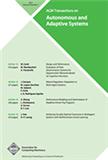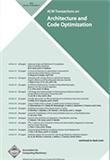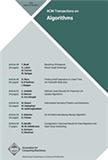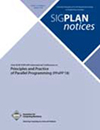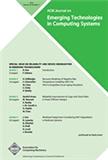Human Factors and Ergonomics in Manufacturing & Service Industries
SCIE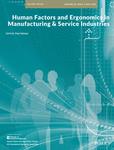
- 雜志名稱:制造業(yè)和服務(wù)業(yè)中的人的因素和人類工程學(xué)
- 簡稱:HUM FACTOR ERGON MAN
- 期刊ISSN:1090-8471
- 大類研究方向:工程技術(shù)
- 影響因子:1
- 數(shù)據(jù)庫類型:SCIE
- 是否OA:No
- 出版地:UNITED STATES
- 年文章數(shù):27
- 小類研究方向:工程技術(shù)-工程:制造
- 審稿速度:約6.0個(gè)月
- 平均錄用比例:容易
官方網(wǎng)站:http://onlinelibrary.wiley.com/journal/10.1002/(ISSN)1520-6564
投稿網(wǎng)址:https://mc.manuscriptcentral.com/hfm
Human Factors and Ergonomics in Manufacturing & Service Industries
英文簡介The purpose of Human Factors and Ergonomics in Manufacturing & Service Industries is to facilitate discovery, integration, and application of scientific knowledge about human aspects of manufacturing, and to provide a forum for worldwide dissemination of such knowledge for its application and benefit to manufacturing industries. The journal covers a broad spectrum of ergonomics and human factors issues with a focus on the design, operation and management of contemporary manufacturing systems, both in the shop floor and office environments, in the quest for manufacturing agility, i.e. enhancement and integration of human skills with hardware performance for improved market competitiveness, management of change, product and process quality, and human-system reliability. The inter- and cross-disciplinary nature of the journal allows for a wide scope of issues relevant to manufacturing system design and engineering, human resource management, social, organizational, safety, and health issues. Examples of specific subject areas of interest include: implementation of advanced manufacturing technology, human aspects of computer-aided design and engineering, work design, compensation and appraisal, selection training and education, labor-management relations, agile manufacturing and virtual companies, human factors in total quality management, prevention of work-related musculoskeletal disorders, ergonomics of workplace, equipment and tool design, ergonomics programs, guides and standards for industry, automation safety and robot systems, human skills development and knowledge enhancing technologies, reliability, and safety and worker health issues.
Human Factors and Ergonomics in Manufacturing & Service Industries
中文簡介制造業(yè)和服務(wù)業(yè)的人為因素和人類工效學(xué)的目的是促進(jìn)發(fā)現(xiàn)、整合和應(yīng)用有關(guān)制造業(yè)人的方面的科學(xué)知識,并為全球傳播此類知識提供一個(gè)論壇,使其應(yīng)用于制造業(yè)并對制造業(yè)有利。該雜志涵蓋了廣泛的人機(jī)工程學(xué)和人為因素問題,重點(diǎn)關(guān)注當(dāng)代制造系統(tǒng)的設(shè)計(jì)、操作和管理,包括車間和辦公環(huán)境,以追求制造的靈活性,即增強(qiáng)和整合人的技能和硬件性能,以改善市場。競爭力、變更管理、產(chǎn)品和過程質(zhì)量以及人的系統(tǒng)可靠性。該期刊跨學(xué)科和跨學(xué)科的性質(zhì)使其能夠處理與制造系統(tǒng)設(shè)計(jì)和工程、人力資源管理、社會、組織、安全和健康問題相關(guān)的廣泛問題。特定主題領(lǐng)域的例子包括:先進(jìn)制造技術(shù)的實(shí)施、計(jì)算機(jī)輔助設(shè)計(jì)和工程的人的方面、工作設(shè)計(jì)、薪酬和評估、選擇培訓(xùn)和教育、勞動管理關(guān)系、敏捷制造和虛擬公司、全面質(zhì)量管理中的人為因素。耳鼻喉科,預(yù)防與工作有關(guān)的肌肉骨骼疾病,工作場所的人體工程學(xué),設(shè)備和工具設(shè)計(jì),人體工程學(xué)程序,工業(yè)指南和標(biāo)準(zhǔn),自動化安全和機(jī)器人系統(tǒng),人類技能開發(fā)和知識增強(qiáng)技術(shù),可靠性,安全和工人健康問題。
精選同類領(lǐng)域期刊,熱門推薦輕松get~
-
- ACM Transactions on Autonomous and Adaptive Systems
- 期刊ISSN:1556-4665
- 大類研究方向:工程技術(shù)
- 影響因子:
- 數(shù)據(jù)庫類型:SCIE
- 咨詢投稿
-
- ACM Transactions on Architecture and Code Optimization
- 期刊ISSN:1544-3566
- 大類研究方向:工程技術(shù)
- 影響因子:1.444
- 數(shù)據(jù)庫類型:SCIE
- 咨詢投稿
-
- ACM Transactions on Applied Perception
- 期刊ISSN:1544-3558
- 大類研究方向:工程技術(shù)
- 影響因子:
- 數(shù)據(jù)庫類型:SCIE
- 咨詢投稿
-
- ACM Transactions on Algorithms
- 期刊ISSN:1549-6325
- 大類研究方向:工程技術(shù)
- 影響因子:
- 數(shù)據(jù)庫類型:SCIE
- 咨詢投稿
-
- ACM SIGPLAN NOTICES
- 期刊ISSN:0362-1340
- 大類研究方向:工程技術(shù)
- 影響因子:
- 數(shù)據(jù)庫類型:
- 咨詢投稿
-
- ACM Journal on Emerging Technologies in Computing Systems
- 期刊ISSN:1550-4832
- 大類研究方向:工程技術(shù)
- 影響因子:2.013
- 數(shù)據(jù)庫類型:SCIE
- 咨詢投稿
精選常見問題,答疑解惑輕松get~
- 三篇ssci論文怎么同時(shí)投出去
- 中文核心和sci哪個(gè)影響力更大
- 中科院一區(qū)和JCR一區(qū)期刊占比區(qū)別
- 發(fā)ssci如何快速找合適的期刊
- 資源保護(hù)方面論文投sci指導(dǎo)
- 外貿(mào)行業(yè)論文發(fā)ssci周期長嗎
- 國外的sci投到錄用一般多久
- ssci期刊國內(nèi)認(rèn)可度
- 核能應(yīng)用論文翻譯英文發(fā)sci容易的方法
- 人口老齡化研究論文符合ssci領(lǐng)域嗎
- sci開源和不開源分別是什么意思?有什么影響?
- ssci發(fā)表是高水平學(xué)術(shù)論文嗎
- 生態(tài)修復(fù)主題英文論文會收錄哪些數(shù)據(jù)庫
- 哲學(xué)專業(yè)論文發(fā)英文期刊
- 中科院sci四個(gè)區(qū)的劃分
- ssci期刊和sci期刊的區(qū)別
- ESCI和SCIE要分清
- ssci送審論文多久出結(jié)果
- ssci論文二作有用嗎
- 水土保持類英文期刊好選嗎
- ssci期刊論文一定會檢索嗎
 投稿咨詢
投稿咨詢

